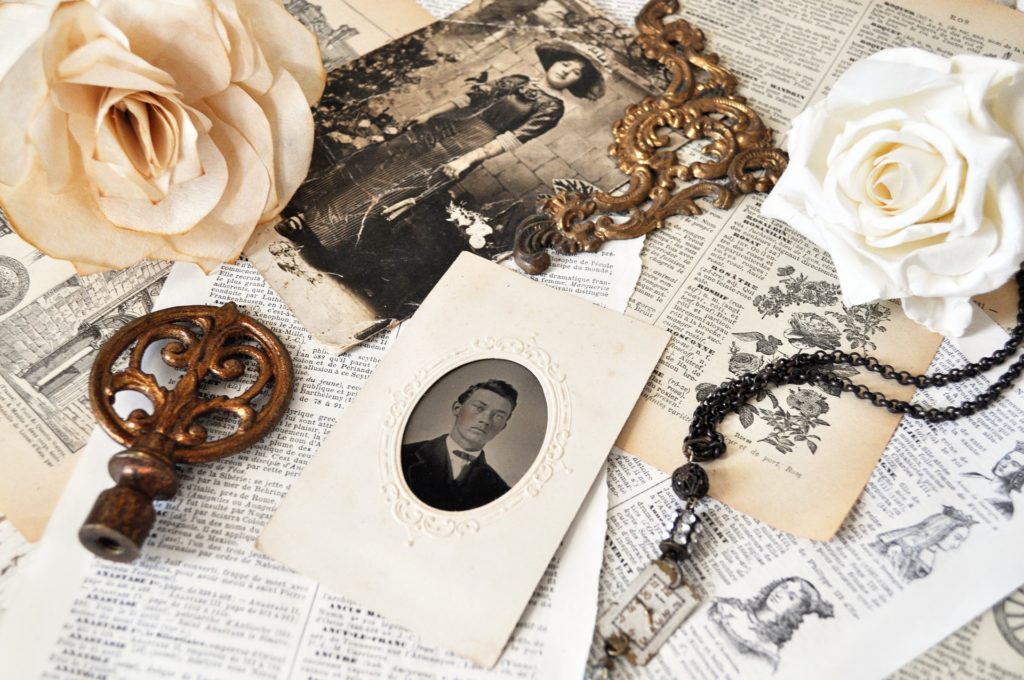
Everywhere you look in your home there is stuff. Richard Eisenberg recently released an article aptly titled, “Sorry, Nobody Wants Your Parents’ Stuff.” As the Money & Word Editor for NextAvene.org, predictably his article garnered a huge response and he published many of them in his follow up posting, “What You Said About ‘Nobody Wants Your Parents’ Stuff’. Some were funny, some sad, but all a true reflection of the emotional roller coaster and unknowing trap walked into by those who either want to “pare down” or have to empty out a home.
I have worked in the downsizing/home transition field for over 12 years and have come across almost every scenario described in the comments. What is hard for people to accept is that many of us have formed some sort of emotional attachment to our “stuff.” This is what makes deciding what to do with it so difficult. Whether a client is downsizing, a family needs to close a home of a deceased person or clutter has created an unsafe environment, the up and downs reaction is the same. Almost every client I have ever worked with has said that they don’t even want to start the process of decluttering because it is OVERWHELMING.
This response can come from the sheer volume of things that need to be sorted, the hard decisions that have to be made or the lack of support or help in getting through it all. But we understand that our job is to coach and to guide the client, not make decisions. We understand that when we work with a client, we are touching their personal possessions which often are the most private things they own.
Yes, it can be overwhelming, but it doesn’t have to be. The client sees the entire space to be sorted through. We see just one small part, such as sorting through a drawer or clearing off a shelf. When we explain the process of breaking the project down in to manageable bites, we can see some of the pressure they felt begin to ease.
Unless time is of the essence or the “stuff” truly is junk and headed for the trash, we advise clients to not rush through this process, but take all the time necessary to accomplish what they feel they need to. I have had many clients regret moving too fast just to get it done. I am one of those. When my mother passed away I was in my 30’s. I kept some of her things and gave away or sold others. Years later I would regret not keeping many things to pass on to my own children. When trying to make decisions on heirlooms or other items when family members live out of town, we advise clients to snap a photo of the item and email it to those relatives to see if anyone wants that item.
Many strong feelings become crystal clear when family members become involved in helping a parent or other member sort through their things. A daughter can tell her mother (who wanted her daughter to have a teapot that is very special to her) that she needs to get rid of the teapot (because the daughter never wanted it in the first place), and the mother will immediately push back and say, “No!” But we can tell that mother the same thing and she will say, “Good idea.” We are looked at as having a non-emotional, objective opinion when we assist clients, this helps move the process along immensely and is one of the contributing factors to success of companies like mine.
We have had clients who had rooms full of items ordered from QVC or Amazon, but never opened them. We had a client whose father had not only an entire home to sort through, but 8 storage lockers, some of which contained very valuable antique items. And we have had clients who know they will not have room in their new home for some things that are extremely special to them. We try to connect them with someone who will care as much for that item as they do. We have donated pianos to Boys and Girls Clubs, entire sets of china to churches and a violin to a child whose family could not afford one. And MY most treasured partner is my eBay reseller who connects the seller (who thinks no one will want what they have) to a buyer (who has been looking for that thing forever).
Because it can be such an emotional journey for some clients, we recognize that people will often have a feeling of helplessness or loss of power when having to make so many decisions on what to do with their things. We try to restore some of that “power’ by letting them choose what days and times they want to work and what “categories” they want to sort their things in to (i.e. recycle, sell, store, donate, etc.). We are there to offer suggestions, to guide and to advise. We warn them that this needs to be done in short blocks of time, say 4-5 hours. In that amount of time they will have made hundreds of decisions and the brain just cannot manage one more decision and that “overwhelming” feeling steps in. They are the master of the ship. We just guide it.
My company is named Cut the Clutter Co. for a reason. Companies like mine help people get rid of the things that are cluttering their homes and their lives. My definition of clutter is the ability of things to “automatically” multiply. Where does it all come from? Some of our clutter habits start in our childhood. We had a client who kept buying new dresses all the time, never wore them and kept the price tags on, because she was deprived of new clothes as a child. Another client could not part with her sister’s piggy bank collection, so it sat in boxes in the basement. And then there is the familiar excuse, “What if I might need it someday?”
But the people who pay most dearly for our decisions are the people who are left to sort through it all when we die. If a client has specific jewelry, books or other treasured possession that they want to leave to someone specifically, we suggest that they make a list of these items (possibly with photos) and include it in their will or other legal documents. For when we die, no one will ever know what we want unless we have told them. The old adage, “You can’t take it with you,” is true, but you can bet that very often those left behind wish you had!
From my point of view, we have become a nation fixated on “want” over “need.” So much of what we have we didn’t need in the first place. There are countless books, articles and even YouTube videos on how to contain and manage clutter. But we wouldn’t have it in the first place if we would not surround ourselves with things we don’t really need, that don’t fit, don’t work, we don’t like and we don’t even want any more.
Now where are my reading glasses? Oh yes! Under the pile of magazines I was going to read…someday!
